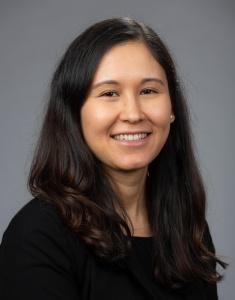
Promising young faculty face a dilemma as they enter academic medicine. Having invested years in medicine, graduate degrees, residency, or specialty training, many are ready to start families; others have relatives who need medical care. At the same time they face incredible pressure to establish themselves professionally and build reputations. This pressure is especially strong for clinician-scientists, who perform research and see patients.
As a result, many new faculty delay their families further, put their research or clinical interests on hold, or become burned out from overwork. A recent AAMC study found that more than 40 percent of young clinicians left academia within 10 years.
The Neurology Department's Noreen Bukhari-Parlakturk, MD, PhD, fits this busy profile. She joined our Department in 2018 after completing her fellowship here at Duke, which came after her residency, medical school, and doctoral program. After having her first child last year, she has returned to work treating patients with movement disorders, researching focal dystonia, and taking classes for a master's degree. Thanks to the Doris Duke Fund to Retain Clinician Scientists Noreen Bukhari-Parlakturk, MD, PhD, has help conducting her research as she continues those efforts and raises her new child.
“This award is plugging a hole in the leaky pipeline of academia for female clinician-scientists like me,” said Bukhari-Parlakturk. “Awards like this give me hope that as junior faculty, we don't have to delay our scientific or personal aspirations.”
There is no effective treatment for focal dystonia, which causes involuntary muscular contractions or abnormal postures in a specific part of the body, often the hands. Bukhari-Parlakturk hopes to use functional magnetic resonance imaging (fMRI) and non-invasive brain stimulation to better understand how focal dystonia works and to develop targeted therapies. The Fund to Retain Clinician Scientists will allow Bukhari-Parlakturk to hire supplemental staff to keep her research progressing at full speed despite her limited time and flexibility.
Duke is one of 10 institutions nationwide to receive the Fund to Retain Clinician Scientists. The Fund offers supplementary assistance to early-stage clinician scientists who already have funding for a research project examining serious biomedical problems, but who would benefit from additional funding to stay productive when also facing significant demands of being a caregiver.
The Doris Duke Charitable Foundation works to improve people's lives through grants supporting the performing arts, environmental conservation, medical research and child well-being, and through preserving the legacy of Doris Duke's properties. Read more about the organization here.